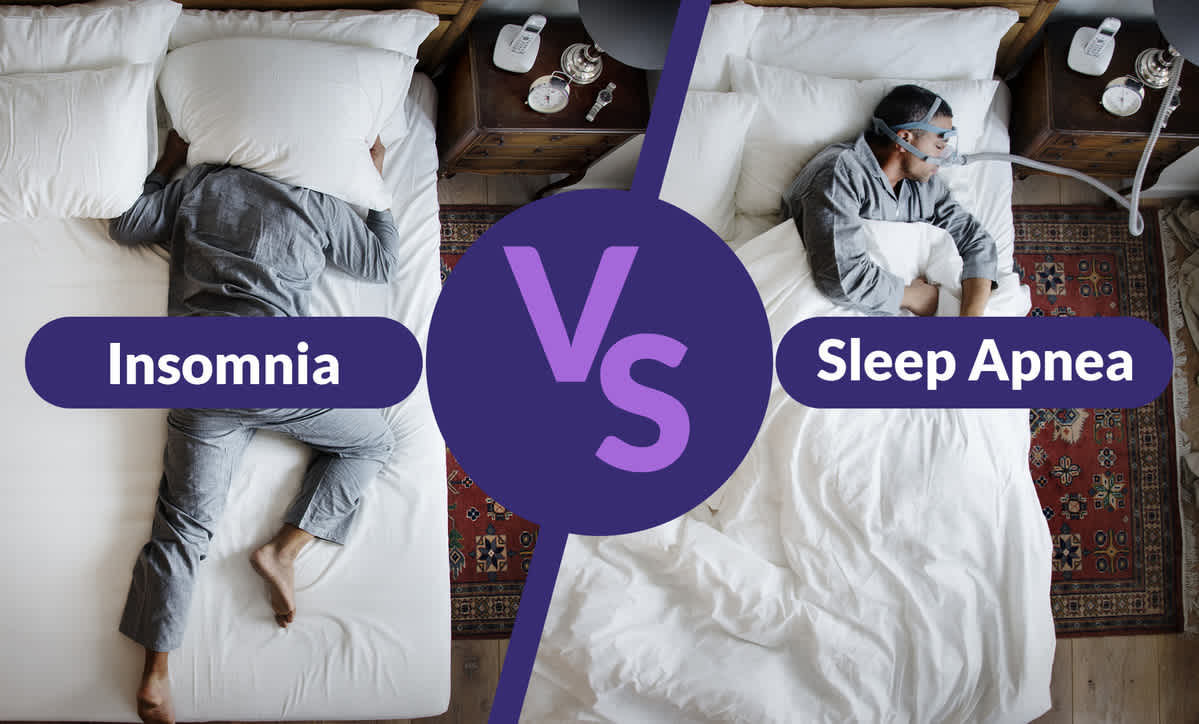Introduction
It’s crucial to get a good night’s sleep if you want to be healthy and happy all around. However, a lot of people find it difficult to fall asleep because of several sleep problems. The two most frequent disorders that can drastically lower someone’s quality of life are insomnia and sleep apnea. We will examine various sleep problems, their origins, symptoms, and potential remedies in this post, highlighting how crucial it is to treat them for improved health.
Understanding Insomnia
- Definition and Types
A sleep condition called insomnia is characterised by problems getting asleep, staying asleep, or having non-restorative sleep. Acute and chronic kinds are the two primary divisions. Acute insomnia is often transient and frequently attributed to certain pressures or life events. On the other hand, chronic insomnia lasts for at least three nights.
- Causes
Numerous things, such as stress, worry, depression, chronic pain, drugs, caffeine, and abnormal sleep patterns, can cause insomnia. Its growth may also be influenced by certain lifestyle decisions, such as excessive screen time before night or a lack of exercise.
- Symptoms
Insomnia’s typical signs and symptoms include trouble falling asleep, many nighttime awakenings, morning awakenings that leave you feeling groggy, daytime weariness, irritability, and problems focusing.
Treatment and Management
Insomnia or Sleep Apnea is frequently treated with a mix of behavioural therapy, lifestyle modifications, and, occasionally, medication. Insomnia patients can detect and change unfavourable sleep patterns and thoughts with the use of cognitive-behavioral treatment (CBT-I). A regular sleep schedule and a comfortable sleeping environment are two examples of excellent sleep hygiene that may significantly enhance the quality of your sleep.
Unveiling Sleep Apnea
- Definition and Type
A sleep disorder called sleep apnea is characterised by breathing pauses while you’re asleep. Obstructive sleep apnea (OSA) and central sleep apnea (CSA) are the two primary kinds of sleep apnea. The more prevalent kind, OSA, results from excessive throat muscular relaxation that blocks the airway. Contrarily, CSA is a less frequent condition in which the brain fails to provide accurate instructions to the breathing muscles.
- Causes
Obesity is frequently linked to OSA because it can increase the amount of fat in the throat and constrict the airway. A family history of sleep apnea, being male, having a wide neck circumference, and certain anatomical features are additional risk factors. CSA has been associated with cardiac conditions, strokes, and certain drugs.
- Symptoms
Loud snoring, followed by intervals of quiet when breathing stops, is the primary sign of sleep apnea. As the body tries to start breathing normally again, this is frequently followed by gasping or choking. People who have sleep apnea may be very sleepy throughout the day, wake up with morning headaches, have trouble focusing, and be irritable.
Treatment and Management
The kind and severity of sleep apnea determine the appropriate treatment. Mild instances of OSA can be helped by lifestyle modifications like losing weight, abstaining from alcohol and sedatives before night, and sleeping on one’s side. For patients with moderate to severe OSA, continuous positive airway pressure (CPAP) therapy is frequently used. It entails donning a mask over the nose and/or mouth that continuously supplies air to avoid airway collapse as you sleep. Addressing the underlying medical problem is essential for CSA. Bilevel positive airway pressure (BiPAP) or adaptive servo-ventilation (ASV) equipment may be employed in specific circumstances.
Conclusion
Both insomnia and sleep apnea are significant sleep disorders that can have far-reaching effects on an individual’s health and well-being. Insomnia can disrupt daily functioning, leading to fatigue and decreased quality of life. Sleep apnea, on the other hand, poses more serious risks, including cardiovascular problems and daytime accidents due to sleepiness. Recognizing the symptoms and seeking appropriate medical advice is crucial for effective management and treatment of these disorders. Whether it’s adopting better sleep habits, undergoing therapy, or using medical devices, addressing these sleep disorders can lead to improved sleep quality and ultimately better overall health. If you suspect you or someone you know may be suffering from insomnia or sleep apnea, consulting a healthcare professional is the first step towards a restful night’s sleep.


 Home
Home









